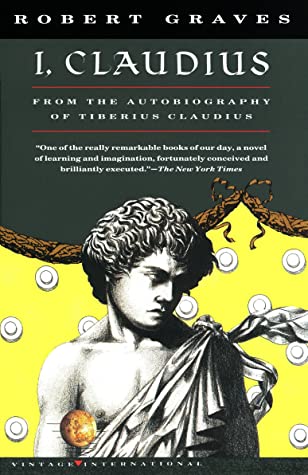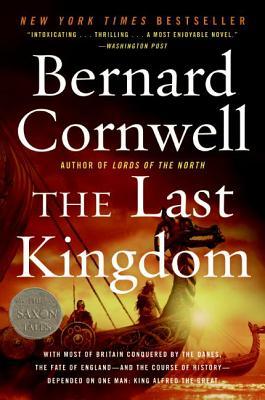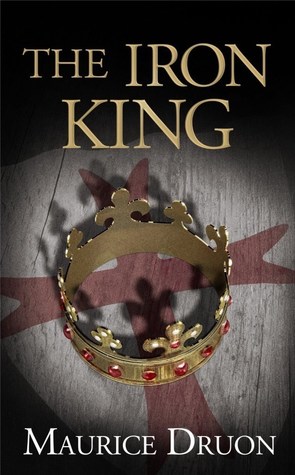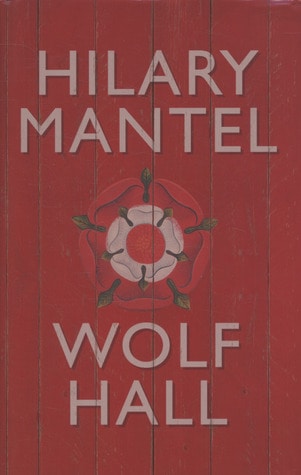Historical Fiction Series: Europe From Ancient Rome to the Renaissance
Armchair travel doesn’t have to be restricted to looking at pretty pictures on the internet; historical fiction can transport you to another time as well as another place….
Historical fiction gives us the best of both worlds: all the pleasure of plotting and characterization from fictional works, plus the knowledge and perspective of non-fiction history. Some critics argue that it’s too easy for authors to give historical characters a modern mind-set, but I think gifted authors find common ground between past and current perspectives to help us better understand both eras. The way we live changes quickly, but human nature doesn’t.
In the spirit of binge-reading, all of the titles have at least one sequel.
Books are linked to Goodreads.com, where you can read excerpts, find libraries or bookstores, and get more information about each title.
Ancient Rome
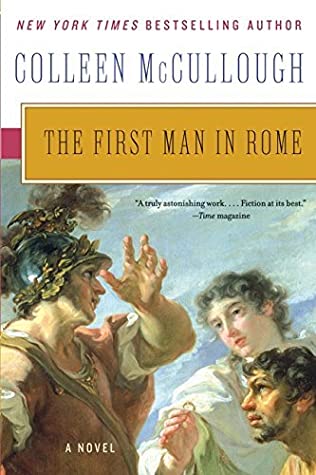
Colleen McCullough
Masters of Rome series
7 books
Rome, Italy and the Mediterranean (Spain to the Middle East, Northern Europe to North Africa)
110-27 BCE
From Spartacus’ slave revolt and Caesar crossing the Rubicon to plenty of lesser-known but fascinating events, McCullough brings ancient Rome to life in all its seedy glory. She makes you feel like you know all the players; ever since I read her Masters of Rome series, visiting Rome gives me a sense of revisiting old friends. I especially liked her complex portraits of the Gaius Marius and Lucius Sulla, who did so much to transform Rome from settlement to powerhouse. Her Julius Caesar is a little too perfect and the later books perhaps more uneven, but there are wonderful moments throughout the series. Even after seven books, each of which is a door-stopper, I didn’t want the story to end.
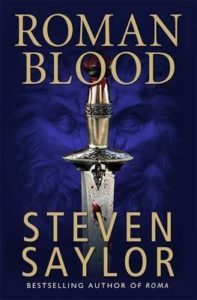
Steven Saylor
Roma Sub Rosa series
13 books
Mostly Rome with some Italy, Marseilles, and Egypt
56 – 44 BCE
For those who don’t have the stamina to make it through McCullough’s epics, or if you like mysteries, let me suggest Steven Saylor. Well-researched and entertaining, Saylor’s Roma Sub Rosa series focuses on the lower classes as well as the rich and powerful. Recurring characters include Cicero, Marcus Crassus, and Caesar. I think the first book is the best of the lot, but I’m still haunted by the description of a slave galley in book 2.
This is the story of the early years of the Roman empire from the point of view of Claudius, and there is some serious depravity. Augustus gave Rome a much-needed overhaul – and did it so well that the empire survived his famously awful successors. Robert Graves’ books enumerate the abuses Claudius suffered from his family. Ultimately, this story felt more like a novel to me than historical fiction, which generally gives some sense of reality even if you’re aware that it’s just one possible interpretation. We know at least that Caligula was certifiably crazy, but was Augustus’ wife Livia really that twisted? It’s great writing, but left me bewildered: how much of that actually happened, or could have happened?
Middle Ages
Cornwell’s eminently readable series is set at the end of the Dark Ages as Anglo-Saxon territories battle Viking invasions and ultimately unite to form England. Sometimes the supposed heroes are annoying (Alfred the Great makes a rather dour visionary) and the barbarians sympathetic (the Danes who abduct Uhtred as a child raise him with love). The rise of “Englaland” is intimately connected to the rise of Christianity – about which the pagan Uhtred has a wonderfully sardonic perspective. The battle scenes are vivid but still entertaining. Uhtred wins fame for his ingenious tactics; my favorite was dropping beehives on the enemy from the castle wall. Note: I can’t vouch for the Netflix series, as I haven’t seen it.
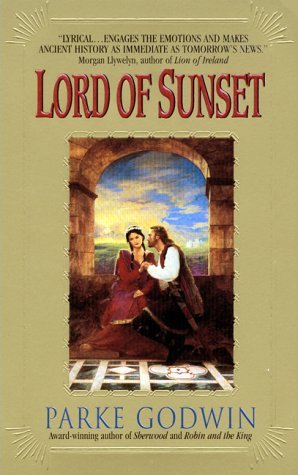
Parke Godwin
Lord of Sunset + Sherwood series
1 book + 2 books
England plus a bit of Normandy
1060’s-1090’s
Godwin pulls off a multiple-point-of-view narrative in a stand-alone novel, using it to convey the disparate forces at work in England in the years leading up to William the Conqueror’s invasion in 1066. He seeds many hallmark issues of English history, such as the tradition of localized government and a skepticism of the “divine right” of kings. In this novel, it’s a foregone conclusion that the grassroots system of the Saxons will fall to the brutally efficient hierarchy of the Norman invaders – but you’ll understand why the resistance continued for years after the invasion (to William’s exasperation).
Technically, they’re not sequels but the Sherwood books pick up where Lord of the Sunset leaves off. Although the legend of Robin Hood is traditionally set during the reign of King John, it’s a great fit for the Saxon-Norman clash of William’s era.
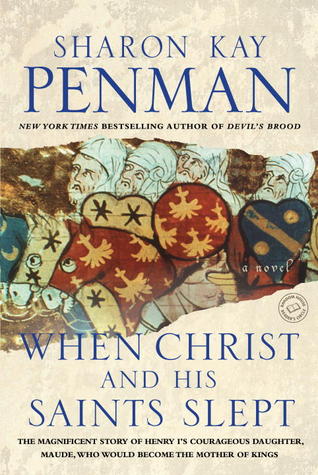
Sharon Kay Penman
Plantagenets series
5 books
England and France; Books 4-5 include Sicily, Cyprus, and the Middle East
1135-99
Penman has a gift for bringing clarity to complicated time periods without sacrificing nuance. The Plantagenets series focuses on Eleanor of Aquitaine, Henry II, and their “devil’s brood” of children, including Richard the Lionheart and King John. Over the course of five diverse books, Penman shows how destructive family relationships can overshadow even the most brilliant rulers. Henry and Eleanor’s triumphant union merges enough territory for them to become a major force in Europe – until Henry refuses to share power with his formidable wife and their ambitious sons, and their personal battles turn into actual wars. As far as I’m concerned, Eleanor of Aquitaine gets the prize for most interesting person of the Middle Ages, and these books showcase her strength of character. The last two books focus on Richard’s Crusade and its aftermath when he was held for ransom.
If you like your royals twisted, Maurice Druon’s Accursed Kings series is for you. The premise comes from the legendary curse against the French royal house, invoked by the Grand Master of the Knights Templar just before he was burned at the stake. King Philippe IV (a.k.a. “Le Bel”) wiped out the entire Templar order, which had grown immensely rich and powerful. This is high drama – even the Wikipedia recaps sound pretty sensational – but in spite of Druon’s claim that he wrote the series for the money, all seven books were well-received. Nicolas Sarkozy and Vladimir Putin are fans, and George R.R. Martin calls it “the original Game of Thrones.”
Renaissance
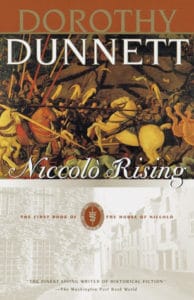
Dorothy Dunnett
House of Niccolò series
8 books
Just about everywhere in Europe from Iceland to Cyprus, plus Africa and the Middle East; special focus on Venice, Bruges, and Edinburgh.
1461 – 77
Dunnett’s writing recreates the Renaissance with staggering detail. While she doesn’t neglect politics or the arts, her emphasis on trade as the driving force behind the Renaissance sets her apart from anyone else in the genre. Such was the interconnectedness of the trade network that a remark by Cosimo de Medici would have repercussions in both Flanders and Persia.
Dunnett has a cult following amongst the literary and academic set; devotees spend years teasing out her references, allusions, and quotations. However, you don’t have to understand every detail to appreciate her vivid imagery, whether it’s an inventory of Donatello’s workshop or one of her wild set-pieces: a chase through a glass-blowing factory; a man’s discovery of his lover coated in nectar and abandoned in a ravine full of giant moths; bulls let loose down a winding castle staircase; and a devastating game of chess played with real people and real deaths. (The last example is from the Lymond Chronicles, a series of six books taking place 3 generations after the Niccolò books.)
No list of historical fiction would be complete without Wolf Hall, Hillary Mantel’s portrait of Thomas Cromwell and England during the reign of Henry VIII. Quite simply, it’s a masterpiece.
The second and third books in the trilogy are also worth reading, but I was most engaged by Cromwell’s background – the escape from an abusive father, witnessing the public humiliation of his mentor Cardinal Woolsey, the influence of his travels in Italy, and the religious tensions which invaded his own household. Later on, we get more of Henry the tyrant and bitchy Anne Boleyn.
Do you have a favorite historical fiction series? Please recommend it – we are voracious readers and love to discuss books!


